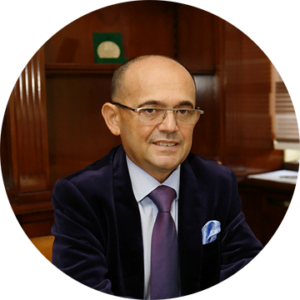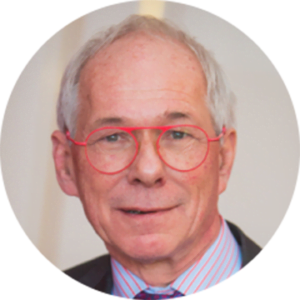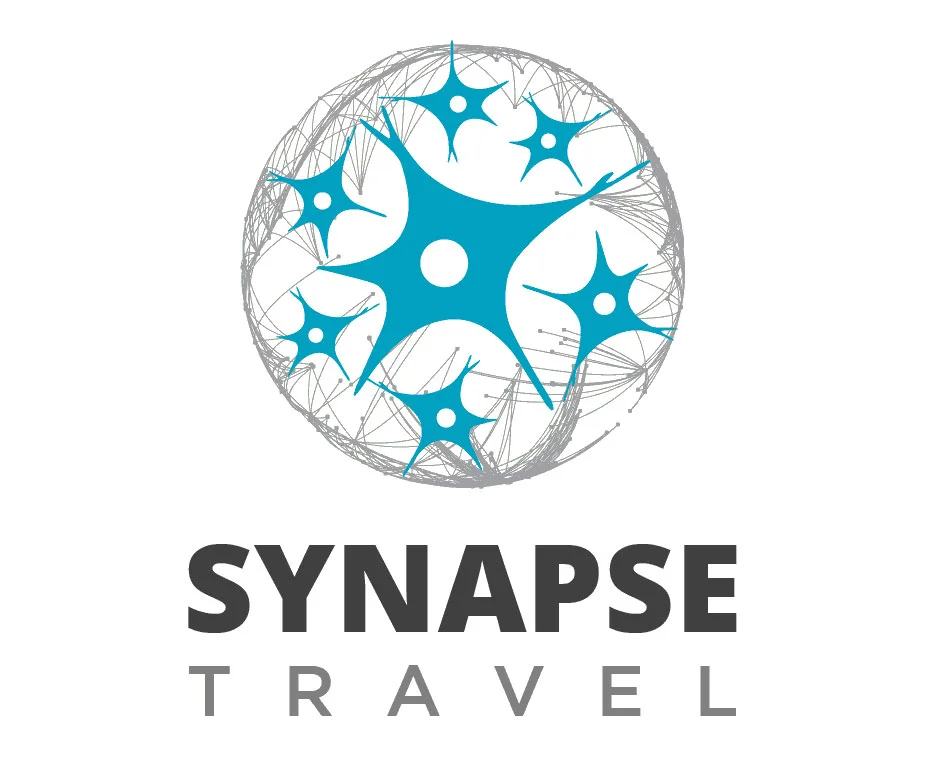8th European Congress on Neurorehabilitation
in conjunction with the 20th Congress of the Society for the Study of Neuroprotection and Neuroplasticity
27–28 October 2025
Torremolinos, Spain
The 2025 event is approaching!
Welcome Address
Dear colleagues, researchers, and friends,
It is with profound enthusiasm and deep appreciation that we welcome you to the 8th European Congress on Neurorehabilitation, held on 27–28 October in the vibrant coastal city of Torremolinos, Spain. This year’s edition, held in conjunction with the 20th Congress of the Society for the Study of Neuroprotection and Neuroplasticity, is of particular significance.
The congress marks a special moment for our collective endeavor. As professionals dedicated to unlocking the potential of the human brain and nervous system, we gather not only to share science, but to ignite new interactions, strengthen partnerships, and envision the future of neurorehabilitation.
Over two full days, we will explore groundbreaking advancements and pressing challenges in:
- Neurorehabilitation after stroke, where new protocols and emerging technologies are revolutionizing patient recovery
- Pharmacological and non-pharmacological therapies, offering fresh perspectives on neuroplasticity and drug development
- Brain–Computer Interfaces, the frontier where neuroscience meets human-machine symbiosis
- The vibrant and fast-developing world of VR and AR applications and Artificial Intelligence for the rollout of educational and planning
- And the evolving landscape of Neurorehabilitation as a whole, where multidisciplinary collaboration continues to define our progress
This congress is more than an event—it is a reflection of what happens when commitment, compassion, and curiosity converge. With your expertise and insight, we are confident that our discussions here will chart new directions and inspire greater impact for patients, caregivers, and communities across Europe and beyond.
In the present format, we emphasize oral communications, especially for young scientists and clinicians, to give a platform for training scientific communication
Let us embrace these sessions as an opportunity not only to learn, but to connect, to challenge, and to grow.
Welcome to Torremolinos! Welcome to the future of Neurorehabilitation!

Prof. dr. Dafin F. Muresanu

Prof. dr Volker Homberg
Provisional Program ECNR 2025
| Time | Hall / Session | Details |
|---|---|---|
| 08:30 – 08:45 | Registration | Registration |
| 08:45 – 09:00 | Opening | Welcome Address |
| 09:00 – 10:20 | Presidential Session Chairpersons: Volker Homberg, Dafin Muresanu | 09:00-09:20 · Dafin Muresanu (Romania) – Operationalizing Brain Reserve 09:20-09:40 · Volker Homberg (Germany) – Quo vadis neurorehabilitation 09:40-10:00 · Natan Bornstein (Israel) – Updates on post-stroke cognitive impairment 10:00-10:20 · Elena Moro (France) – Overview on EAN-EFNR Joint Activities |
| 10:20 – 11:20 | Parallel Halls | |
| 10:20 – 10:40 |
Hall 1 Session 2 Chairperson: Michael Thaut (Canada) | Max Hilz (Germany) – Autonomic nervous system evaluation without specialized equipment or detailed training in the field |
| 10:40 – 11:00 | Hall 1 | Melvyn Roerdink (the Netherlands) – Augmented reality (AR) neurorehabilitation: looking beyond the state of the ARt |
| 11:00 – 11:20 | Hall 1 | Michael Thaut (Canada) – Neurological Music Therapy: Where are we |
| 10:20 – 10:40 |
Hall 2 Session 3 Chairperson: Johannes Vester (Germany) | Thomas Platz (Germany) – Continuum of care – is stroke rehabilitation post discharge effective? |
| 10:40 – 11:00 | Hall 2 | Johannes Vester (Germany) – Neurorehabilitation Research – Biometric Challenges & Advances |
| 11:00 – 11:20 | Hall 2 | Stefan Strilciuc (Romania) – Neurorehabilitation across the translational sciences spectrum |
| 11:20 – 11:40 | Coffee Break | |
| 11:40 – 12:10 | Keynote lecture | Walter Greenleaf (USA) – VR applications |
| 12:10 – 12:40 | Keynote lecture | Dafin Muresanu – Combined speech therapy and pharmacological intervention to enhance neurorecovery in post-stroke aphasia - Results from the ESCAS trial |
| 12:40 – 13:40 | Parallel Halls | |
| 12:40 – 13:00 |
Hall 1 Session 4 Chairperson: Emre Adiguzel (Turkey) | Pamela Enderby (UK) – What Technology Has To Offer to Improve Rehabilitation of Aphasia |
| 13:00 – 13:20 | Hall 1 | Serban Turliuc (Romania) – Mitigating Incipient Cognitive Decline: Positioning N-PEP-12 Within Preventive Care |
| 13:20 – 13:40 | Hall 1 | Emre Adiguzel (Turkey) – Revitalizing Life with Neurotechnologies: The Concept of Ability Laboratory in Rehabilitation |
| 12:40 – 13:00 |
Hall 2 Session 5 Chairperson: Mayowa Owolabi (Nigeria) | Gert Kwakkel (The Netherlands) – Intensity of practice: When does it matter? |
| 13:00 – 13:20 | Hall 2 | Ales Praznikar (Slovenia) – Old treatments for spasticity are still still useful? |
| 13:20 – 13:40 | Hall 2 | Mayowa Owolabi (Nigeria) – Advances of the Lancet Neurology Initiative |
| 13:40 – 15:00 | Lunch Break | |
| 15:00 – 16:20 | Parallel Halls | |
| 15:00 – 15:20 |
Hall 1 Session 6 | AVANT Chairpersons: Peter Lackner, Stephanie Duchac | Peter Lackner (Austria) – Efficacy of an AI-Based Digital Neurorehabilitation Program |
| 15:20 – 15:40 | Hall 1 | Sigrid Schwartz (Austria) – Neurophysiological and neuropathological basics of cognitive rehabilitation |
| 15:40 – 16:00 | Hall 1 | Paola Marangolo (Italy) – ADVANCES IN THE TREATMENT OF POST-STROKE APHASIA |
| 16:00 – 16:20 | Hall 1 | Stephanie Duchac (Germany) – Clinical signs of dysphagia |
| 15:00 – 15:20 |
Hall 2 Session 7 Chairpersons: Karin Diserens, Hakan Ekhmeci | Belgin Erhan (Turkey) – Linking Focal Spasticity Treatment with Functional Recovery after Spinal Cord Injury: Integrating Botulinum Toxin into Neurorehabilitation |
| 15:20 – 15:40 | Hall 2 | Prof. Hakan Ekhmeci (Turkey) – Movement Disorders and TBI |
| 15:40 – 16:00 | Hall 2 | Errikos Maslias (Switzerland) – Behavioral Phenotype of Disorders of Consciousness: Posterior Fossa Syndrome in Adults? |
| 16:00 – 16:20 | Hall 2 | Karin Diserens (Switzerland) – Behavioral phenotyping in DOC – part 1 |
| 16:20 – 16:40 | Coffee Break | |
| 16:40 – 18:00 | Parallel Halls | |
| 16:40 – 17:00 |
Hall 1 Session 8 Chairperson: Kristina Muller | Kristina Muller (Germany) – Functional neurological disorders in children and adolescents |
| 17:00 – 17:20 | Hall 1 | Nicole von Steinbuchel (Germany) – Quality of life in patients after traumatic brain injury across the life span |
| 17:20 – 17:40 | Hall 1 | Sonia Crottaz-Herbette (Switzerland) – Optimizing cognitive rehabilitation with immersive virtual reality |
| 17:40 – 18:00 | Hall 1 | Katrin Rauen (Germany) – Early differential diagnosis of cognitive dysfunction after TBI |
| 16:40 – 17:00 |
Hall 2 Session 9 | Anhedonia and motivational deficits after acute brain lesion Chairperson: Dana Boering | Dana Boering (Germany) – Overview on Motivation |
| 17:00 – 17:20 | Hall 2 | Emma Segura (ICREA Barcelona, Spain) – Anhedonia after Stroke: prevalence and associated factors in the subacute and chronic rehabilitation phases |
| 17:20 – 17:40 | Hall 2 | Andreas Luft (Zürich, Switzerland) – Reward circuitry, Dopa and rehab outcome AR |
| 18:00 – 18:30 | Keynote lecture | Wayne Feng (USA) – State of the art in non-invasive brain stimulation |
| Time | Hall / Session | Details |
|---|---|---|
| 09:00 – 11:00 | Round table | State of affairs in Neurorehabilitation Moderators: Dafin Muresanu and Volker Homberg | Dafin Muresanu – EFNR State of affairs Ljubica Konstantinovic / Sindi Mitrovic (Serbia) Caterina Pistarini (Italy) Joan Ferri Campos (Spain) Thomas Platz (Germany) Emre Adiguzel (Turkey) Peter Lackner (Austria) Gert Kwakkel (The Netherlands) Pavel Leahu (Moldova) Ales Praznikar (Scotland/Slovenia) Sonia Crottaz-Herbette (Switzerland) |
| 11:00 – 11:20 | Coffee Break | |
| 11:20 – 12:20 | Parallel Halls | |
| 11:20 – 11:40 |
Hall 1 Session 10 Neuroethics and Neurophilosophy | What is the impact on neurorehabilitation? Heinrich Binder, Giorgio Sandrini | Sabahat Wasti (UAE) – Ethics and inclusion: the impact on patients with disability |
| 11:40 – 12:00 | Hall 1 | Heinrich Binder (Austria) – Social perception and stigma: the role of hidden disability |
| 12:00 – 12:20 | Hall 1 | Giorgio Sandrini (Italy) – Neuroethics and the role of empathy |
| 11:20 – 11:40 |
Hall 2 Session 11 | Rare Neurological Diseases Chairperson: Antonio Federico | Antonio Federico (Italy) – Rare Neurologic Diseases mimicking a Multiple Sclerosis-like phenotype |
| 11:40 – 12:00 | Hall 2 | Jean Marc Burgunder (Switzerland) – Rehabilitation in Huntington's disease |
| 12:00 – 12:20 | Hall 2 | Max Hilz (Germany) – Fabry Disease -a rare and often fatal but well treatable with early 1.0 mg/kg Enzyme Replacement Therapy |
| 12:20 – 13:20 | Session 12 | EFNR-WFNR Joint Session Chairpersons: Dafin Muresanu, Volker Homberg | 12:20-12:40 · Sabahat Wasti – Minimal requirements in neurorehabilitation 12:40-13:00 · Karin Diserens – Behavioral phenotyping in DOC – part 2 13:00-13:20 · Caterina Pistarini – Mental Imagery for planning actions in stroke patients |
| 13:20 – 14:30 | Lunch break | |
| 14:30 – 15:30 | Parallel Halls | |
| 14:30 – 14:50 |
Hall 1 Session 13 | EFNR – AMN Joint Session Chairpersons: Johannes Vester, Dafin Muresanu | Pieter Vos – Standardization in Mild Traumatic Brain Injury |
| 14:50 – 15:10 | Hall 1 | Luca Sebastianelli – Long-Term Effects of TBI: From Symptoms to Public Health Burden |
| 15:10 – 15:30 | Hall 1 | Johannes Vester (Germany) – The global burden of TBI with special emphasis on the APC region |
| 14:30 – 15:30 |
Hall 2 Session 14 | Oral presentations | |
| 15:30 – 16:30 | Parallel Halls | |
| 15:30 – 15:50 |
Hall 1 Session 15 | EFNR – NeurotechEU Joint Session Chairperson: Dafin Muresanu, Stefan Strilciuc | Jose M. Azorin (Spain) – AI-powered brain-machine interfaces for neurorehabilitation with exoskeletons |
| 15:50 – 16:10 | Hall 1 | Paul Verschure (Spain) – Goal-oriented neurorehabilitation |
| 16:10 – 16:30 | Hall 1 | Paulo Gargiulo (Iceland) – Novel paradigm to assess postural control response using high density EEG, virtual reality and moving platform |
| 15:30 – 15:50 |
Hall 2 Session 16 | Built environments in neurorehab and the need of environmental enrichment Chairperson: Margo Annemans | Marie Elf (Sweden) – The Role of Environment in Stroke Rehabilitation |
| 15:50 – 16:10 | Hall 2 | Margo Annemans (Belgium) – Mobilising Patients: Built Environment and Physical Activity in Rehabilitation |
| 16:10 – 16:30 | Hall 2 | Steven Zeiler (USA) – Enriched environments and recovery |
| 16:30 – 17:00 | Coffee Break | |
| 17:00 – 17:30 | Volker Homberg – AI in neurorehabilitation – blessing or curse | |
| 17:30 – 18:00 | Keynote lecture | Dafin Muresanu – Advances in brain recovery after stroke |
| Closing and farewell | ||
Partnership Opportunities
The European Federation on Neurorehabilitation (EFNR) is a leading professional organization dedicated to improving the lives of individuals with neurological disorders through the promotion of excellence in neurorehabilitation. Our work spans research, education, and clinical practice across Europe.
We propose a multi-faceted partnership that includes:
- Participation in the European Congress on Neurorehabilitation: Engage with our community through exhibitions, sponsored symposia, and networking events. Showcase your latest advancements in pharmacological treatments relevant to neurorehabilitation.
- Joint research initiatives: Co-sponsor and collaborate on clinical trials, observational studies, and other research projects that align with our shared goals.
- Educational partnerships: Support the development of educational materials, scholarships, and training programs for healthcare professionals.
- Advocacy and policy collaboration: Work with us to influence healthcare policy and raise awareness about the critical role of neurorehabilitation.
Your expertise and resources are invaluable in accelerating progress in this vital field. By combining your pharmaceutical innovations with our clinical and scientific leadership, we can create a powerful synergy that will significantly benefit patients.
We look forward to welcoming you to the 8th European Congress on Neurorehabilitation, where we will discuss how to build a mutually beneficial partnership. Please contact us at your earliest convenience to explore these opportunities further.
Call For Abstracts
The European Federation of NeuroRehabilitation Societies (EFNR) invites researchers, clinicians, innovators, and students to submit abstracts for oral and poster presentations at the 8th European Congress on Neurorehabilitation. This year’s congress will feature cutting-edge discussions and discoveries across the following key topics:
- 🧠 Neurorehabilitation after Stroke
- 💊 Pharmacological and Non-Pharmacological Therapies in Neurological Recovery
- 🖥️ Brain–Computer Interfaces in Clinical and Research Settings
- 🧬 General Advances in Neurorehabilitation and Translational Science
We welcome submissions from all professional disciplines contributing to the field of neurorehabilitation, including medicine, physiotherapy, neuropsychology, occupational therapy, biomedical engineering, and digital health.
This year we will provide a large number of slots for oral presentations.
Presentations will also be possible in a hybrid format via Zoom Events.
✏️ Abstract Guidelines
- Maximum length: 300 words (excluding title and author information)
- Structured format: Background, Methods, Results, Conclusion
- Submit via email: [email protected]
- Accepted abstracts will be published in the congress proceedings and may be considered for awards
🎓 Young researchers and students are particularly encouraged to apply. Selected presentations may qualify for travel grants and mentoring opportunities during the congress.
The abstract submission deadline is August 31, 2025.
For inquiries, contact: [email protected]
We look forward to your contribution to shaping the future of neurorehabilitation in Europe!
Registration Fees
| Category | Regular EUR | On Site EUR |
|---|---|---|
| EFNR member | 650 | 790 |
| Non-member | 790 | 890 |
| Non-Physicians | 500 | 600 |
| Trainees, fellows, residents | 490 | 590 |
| Medicine students | 240 | 290 |
| Day ticket (on site only) | 400 | 500 |
| Online | 500 | – |
Corporate deals
| Contribution (EUR) | Supporter* | Silver | Gold | Platinum | Diamond |
|---|---|---|---|---|---|
| 5,000 | 10,000 | 20,000 | 30,000 | 50,000 | |
| Congress registrations | NO* | 10 | 20 | 30 | 40 |
| Access to the networking event | NO | YES | YES | YES | YES |
| Partner Signage I (onsite and online materials – booklet, rollups, visuals) | NO | NO | YES | YES | YES |
| Partner Signage II (onsite and online materials – PS I + conference lanyards and badge, email campaign in EFNR newsletter) | NO | NO | NO | YES | NO |
| Partner Signage III – PS I + PS II – less the lanyards + conference bag, Speaker’s Lounge Branding | NO | NO | NO | NO | YES |
| Partner representative onsite | NO | NO | YES | YES | YES |
| Booth in the industry area (up to 10m²) | NO | NO | YES | YES | YES |
| Booth in the industry area (up to 20m²) | NO | NO | NO | YES | YES |
| Booth in the industry area (up to 50m²) | NO | NO | NO | NO | YES |











